Issue Editorial Board
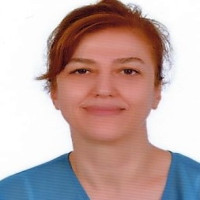
 0000-0003-3424-3919
0000-0003-3424-3919
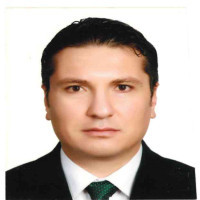
 0000-0001-8385-9846
0000-0001-8385-9846
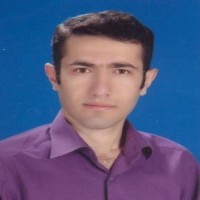
 0000-0001-9016-8584
0000-0001-9016-8584


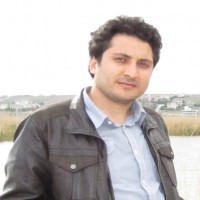
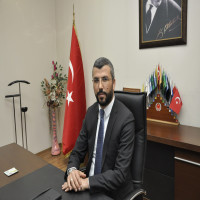

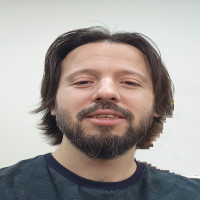

 0000-0002-8156-5075
0000-0002-8156-5075
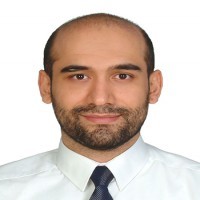
 0000-0003-0131-5621
0000-0003-0131-5621
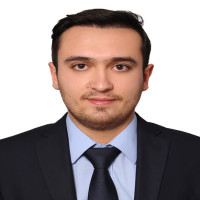

Aim & Scope
The International Journal of Aeronautics and Astronautics is a single-blind peer-reviewed (reviewed by at least two reviewer), open access and online journal, covering all areas of aviation management and technology. It is an interdisciplinary journal focused on original articles, essays/reviews, letters to the editor, case reports, book reviews and scientific translations, aiming to contribute to the field of aviation management and technology in Türkiye and in the world. Journal publication languages are English and Turkish (only for Social Sciences). The journal accepts manuscript in every publication period.
The articles in the journal are aimed at researchers, practitioners and undergraduate/graduate students who are interested in all the main elements of the aviation industry (airlines, airports, air traffic management, aircraft engineering, mechanical engineering, avionics engineering, etc.).
The journal presents studies on the following topics under the main areas of social and technology:
Social Sciences
Safety Management Systems, Air Traffic Management, Air Transportation Management, Airport Planning and Management, Aviation Management, Aviation Physiology, Aviation Security, Aviation Law, Aviation Meteorology, Aviation Psychology, Aviation Sector Studies, Aviation History, Aviation Safety and Security Management, Financial Management in Aviation, Human Resources Management in Aviation, Aviation Logistics Management, Organizational Behavior in Aviation, Aviation Marketing Management, Risk Management in Aviation, Ground and Cabin Services in Aviation, Airport Design, Airline Industry/Commercial Aviation, Airline Management, Flight Operations Management.
Technology
Aerodynamics, Aeroelastic Analysis and Design, Fluid Mechanics, Avionic Systems, Multidisciplinary Design Optimization, Aircraft Maintenance and Repair, Aircraft Propulsion Systems, Aviation Rules, Aviation Materials, Aviation Training, Aviation and Artificial Intelligence, Aviation Structures, Human Factors in Aviation, Helicopter Design, Computational/Experimental Fluid Dynamics/Mechanics, Heat Transfer and Combustion, Unmanned Aerial Vehicles, Navigation Systems, Measurement and Modeling, Aircraft Airframe Engine and Maintenance, Aircraft Performance, Aircraft Design, Flight Mechanics, Flight Dynamics and Control, Satellite Technologies, Gas Turbine Engine, Aviation Oils and Fuels, Aircraft Engine, Other Aircraft and Technologies.
Writing Rules
Author Guidelines
Please, firstly you must register to Turkish Journal Park system. You can submit your article via your user page at https://dergipark.org.tr/en/register/
YOU CAN ACHIEVE TO EXAMPLE MANUSCRIPT TEMPLATE.
You must be prepared your manuscript according to rules below.
* The title of article must be 14 point.
* The under of article title must be contain author(s) name(s) and complete affiliation(s), title, and complete mailing address of the person to whom all correspondence should be addressed. Besides, author(s) must give their ORCID number before abstract section.
* The abstract must be in English and Turkish and it must be occurred from between 150-250 word.
* Maximum 5 keywords must be. (upper case at the beginning of each keyword, semicolon between keywords, and keywords must be in alphabetical order)
*Abstract and Manuscripts should be double-spaced using 12-point font in Times New Roman.
* The manuscript must be prepared as single column.
* Main sections and subsections should be numbered consecutively.
* All of the references given at the end of the paper that listed consecutively should be cited in the main text with numerals in a square bracket, for example [1, 2-5].
* Contents of tables should be 12-point font. If necessary, these can be lower point font.
* Figures must have at least 300 dpi resolution. Black and white or colored figures are acceptable.
* Each table and figure should be cited in the text.
* Equations must not be images or pictures. They must be prepared in office word equation editor.
* Nomenclature and abbreviations can present as a table.
Authorship contribution statement for Contributor Roles Taxonomy
Contributor Roles Taxonomy was introduced with the intention of recognizing individual author contributions, reducing authorship disputes and facilitating collaboration. The corresponding author is responsible for ensuring that the descriptions are accurate and agreed by all authors. For example;
İlker Örs: Writing - original draft, Investigation, Visualization, Supervision, Conceptualization, Methodology, Software, Formal analysis. Murat Ciniviz: Investigation, Supervision, Writing – review & editing. Savaş Yelbey: Investigation, Visualization, Supervision. Bahar Sayın Kul: Conceptualization, Methodology, Software, Formal analysis.
Conflicts of Interest: The author(s) declare no conflict of interest.
References
References must show in text as single reference [1], multi reference [1, 4, 8, 10], if references are consecutive [1-5], it is expressing 1, 2, 3, 4, and 5 number references. References must be numbered according to the order of use in the manuscript. References must be size 12pt. All references must show with its original language.
Reference to a journal publication:
Last name, Initial. Publishing year. Publishing name. Journal Name, Volume(Issue), pages.
Örs, İ., Ciniviz, M. and Sayın, B. 2016. Using of biofuel – diesel fuel blends in a diesel engine. Internal Journal of Energy Applications and Technologies, 4(1), 223-234.
Örs, İ. and Ciniviz, M. 2019. Renewable energy systems in Turkey. Internal Journal of Energy Applications and Technologies, 4(1), 223-234.
Örs, İ. 2018. The production of biodiesel from safflower seed oil. Internal Journal of Energy Applications and Technologies, 4(1), 223-234.
Reference to a book:
Last name, Initial. Book name, Edition number, Publisher, Place Published, Year.
Ors, I., Ciniviz, M. and Sayın, B. Using of biofuel – diesel fuel blends in a diesel engine, Fourth edition, AcademicPaper, Turkey, 2000.
Reference to a chapter in an edited book:
Last name, Initial. (Section author(s)), Section name, in: Editor(s)/Author(s) of book, Book Name, Edition number, Publisher, Place Published, Year, pages.
Ors, I., Ciniviz, M. and Sayın, B. Diesel engines, in: Kahraman, A., Oguz, H., Internal Combustion Engines, Second edition, AcademicPaper, Turkey, 2000, 158-172.
Reference to a Master or Ph.D. thesis:
Last name, Initial. Year. “Thesis name”. Master/Ph.D. thesis, University/Institute/Faculty, City, Country, pages.
Ors, I. 2000. “Using of biofuel – diesel fuel blends in a diesel engine”. Ph.D. thesis, Selcuk University, Graduate School of Natural Sciences, Konya, Turkey, 66-95.
Reference to a conference presentation (at conference book):
Last name, Initial. Publishing year. Presentation name. Organization/Conference/Symposium Name, Organization dates, Volume(Issue), City, Country, pages.
[1] Ors, I., Ciniviz, M. and Sayın, B. 2016. Using of biofuel – diesel fuel blends in a diesel engine. International Conference on Advanced Technology & Sciences, 23-25 November, 4(1), Rome, Italy, 223-234.
Reference to a web page/site:
Author, Title, Year|. URL. (Accessed Access Date Access Year).
[1] Örs, İ., The article, 2016. https://dergipark.org.tr/ijeat/issue/27866/294888.(18 March 2020).
The Journal also publishes Turkish articles related to aviation management studies.
https://dergipark.org.tr/tr/journal/3560/file/5432/download
Ethical Principles and Publication Policy
International Journal of Aeronautics and Astronautics accepts and applies the Personal Data Protection Principles accepted by Turkish Dergipark.
Twin publishing is the publication of the same article or substantially similar articles in more than one journal. The editor returns this type of article without review. After that, the editor may impose an embargo on the author attempting to twin publishing for a certain period of time, explain this situation to the public in the journal in which the author has previously published (perhaps as a simultaneous announcement with the editor of the journal that published the previous article), or apply all of these measures together.
Authors cannot submit the same manuscript to more than one journal at the same time. The editor reserves the right to consult the other editor(s) receiving the manuscript if it learns of possible simultaneous submission. In addition, the editor may return the article without review or reject it without considering the reviews, or take this decision by discussing it with the other relevant editor(s) and may decide not to accept manuscript submissions from the authors for a certain period of time. It can also write to the authors' employers or implement all of these measures together.
When readers notice a major error or inaccuracy in an article published in the International Journal of Aeronautics and Astronautics, or have any complaints about editorial content (plagiarism, duplicate articles, etc.), they can send an e-mail to ijaa@selcuk.edu.tr. can make a notification.
1. Turkish Press Law,
2. Law on Intellectual and Artistic Works of Turkish,
3. Higher Education Institutions Scientific Research and Publication Ethics Directive of Turkish,
4. Committee on Publication Ethics (COPE),
5. Council of Science Editors (CSE),
6. World Association of Medical Editors (WAME),
7. International Committee of Medical Journal Editors (ICMJE)
An ethics committee approval must be obtained for research conducted in all disciplines including social sciences and for clinical and experimental studies on humans and animals, requiring ethical committee decision, and this approval should be stated and documented in the article.
It should be indicated in the journal and/or web page under a separate heading referring to national and international standards.
Information on the ethical rules under separate headings should be provided under this heading, for the peer-reviewers, authors and editors.
It should be stated that the articles comply with Research and Publication Ethics.
Reference to international standards and institutions should be made. For example, scientific articles sent to journals should take into account the recommendations of the International Journal of Aeronautics and Astronautics Editors (IJAAE) and the International Standards for Editors and Authors of COPE (Committee on Publication Ethics).
In studies requiring ethical committee permission, information about the permission (board name, date and issue number) should be included in the method section and on the first/last page of the article.
For the scales used in data collection, the permission of the scale owner should be obtained and declared in the article.
Copyright regulations must be observed for the ideas and works of art used.
1) All kinds of research conducted with qualitative or quantitative approaches that require data collection from participants using questionnaires, interviews, focus group work, observation, experimentation, interview techniques,
2) Using human and animals (material / including data) experimental or other scientific purposes,
3) Clinical studies on humans,
4) Clinical studies on animals,
5) Retrospective studies in accordance with the law on protection of personal data.
Statement Form for studies that do not require Ethics Committee Permission, click to form
Price Policy
Free
International Journal of Aeronautics and Astronautics is licensed under a Creative Commons Attribution-NonCommercial 4.0 International License (CC BY NC).

